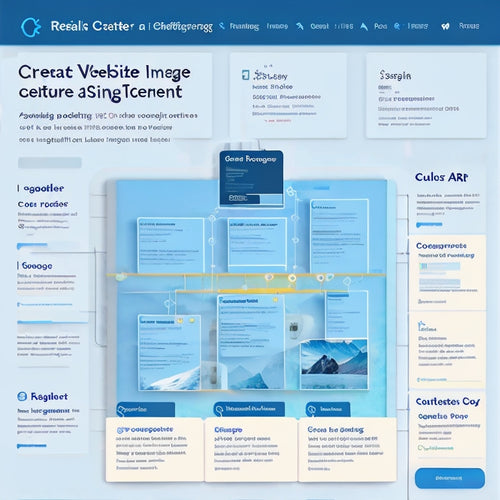
Navigate the Digital Literacy Gap: A Merchant's Roadmap
Share
You're already behind in the digital literacy race, and it's holding your business back. To catch up, start by evaluating your current digital skills, identifying strengths and weaknesses, and pinpointing areas for improvement. Then, build foundational ecommerce skills like product management, online marketing, and data analysis. Next, master advanced digital tools like AI-powered chatbots, social media marketing, and SEO tools. Finally, stay ahead of the curve by leveraging AI, VR, AR, blockchain, and 5G networks. By following this roadmap, you'll be well on your way to bridging the digital literacy gap and taking your business to the next level - and there's more to explore.
Key Takeaways
• Assess your digital literacy by identifying strengths, weaknesses, and areas of struggle to create a personalized learning roadmap.
• Conduct a gap analysis to prioritize learning efforts and focus on ecommerce essentials like product management and online marketing.
• Develop advanced digital skills, including AI-powered tools, data analysis, and social media marketing to stay competitive.
• Stay ahead of the curve by leveraging emerging technologies like VR, AR, blockchain, and 5G network for immersive shopping experiences.
• Continuously improve digital literacy by exploring learning resources, mentorship programs, and online courses to navigate the digital marketplace.
Assessing Your Digital Literacy
You can't close the digital literacy gap if you don't know where you stand, so start by taking an honest inventory of your current digital skills. Conduct a self-assessment to identify your strengths and weaknesses. Be brutally honest – it's the only way to get an accurate picture.
Ask yourself: What digital tools do I use daily? What tasks do I struggle with? What skills do I wish I had?
Once you have a clear understanding of your digital literacy level, you can start exploring learning resources. Look for online courses, tutorials, or workshops that cater to your needs. You can also seek guidance from colleagues or mentors who are more digitally savvy.
Identifying Key Knowledge Gaps
With a clear understanding of your digital literacy level, it's time to pinpoint the specific areas where you need improvement, starting with the key knowledge gaps that are hindering your progress.
Conducting a gap analysis will help you identify the skills you lack and prioritize your learning efforts. This process involves evaluating your current skills against the required skills for your business goals. By doing so, you'll uncover the areas where you need to focus your skill development efforts.
Next, determine your learning priorities by ranking your knowledge gaps in order of importance. This will enable you to allocate your time and resources effectively. You can then explore training resources that cater to your specific needs. These resources may include online courses, workshops, webinars, or mentorship programs.
Building Foundational Ecommerce Skills
Developing a strong foundation in ecommerce skills is essential to staying competitive in the digital marketplace, as it enables merchants to create and execute effective online strategies that drive sales and revenue. By focusing on building foundational ecommerce skills, you'll be better equipped to navigate the ever-changing digital landscape.
Here are the ecommerce essentials you should prioritize:
-
Product management: Learn how to optimize product listings, manage inventory, and streamline order fulfillment.
-
Online marketing: Develop skills in search engine optimization (SEO), pay-per-click advertising, and social media marketing to reach your target audience.
-
Customer engagement: Understand how to create personalized customer experiences, respond to reviews, and build loyalty programs.
- Data analysis: Learn to interpret sales data, track website analytics, and make data-driven decisions to inform your ecommerce strategy.
Mastering Advanced Digital Tools
Six advanced digital tools are necessary to elevating your ecommerce game, from AI-powered chatbots to sophisticated analytics software, and mastering them will set you apart from the competition. You've built a solid foundation, now it's time to take your skills to the next level.
Data analytics is a vital component of your toolkit. You need to be able to collect, analyze, and act on customer data to optimize your marketing strategies and enhance customer experiences.
Social media marketing is another key area to focus on. With the right tools, you can create targeted campaigns, engage with customers, and drive sales.
Other essential tools include AI-powered email marketing software, customer relationship management (CRM) systems, and search engine optimization (SEO) tools. Don't be intimidated by the learning curve - each of these tools offers a wealth of online resources and tutorials to get you started.
Staying Ahead of the Curve
You're constantly scanning the digital horizon, anticipating the next innovation that will disrupt the ecommerce landscape and give you a competitive edge. Staying ahead of the curve requires a mindset of continuous improvement, where you're always on the lookout for ways to optimize your operations and stay one step ahead of the competition.
Here are a few key areas to focus on:
-
Artificial Intelligence (AI) Integration: How can you leverage AI to streamline processes, enhance customer experiences, and gain valuable insights from data?
-
Virtual and Augmented Reality: How can you use VR and AR to create immersive shopping experiences, improve product demos, and enhance customer engagement?
-
Blockchain Technology: How can you utilize blockchain to increase transparency, security, and efficiency in your supply chain and logistics operations?
- 5G Network Advantages: How can you take advantage of 5G's faster speeds and lower latency to enhance mobile commerce, improve customer experiences, and increase operational efficiency?
Frequently Asked Questions
How Do I Balance Digital Literacy With Traditional Business Operations?
As you juggle the scales of progress and tradition, remember that balance is key. You're not replacing old with new, but blending them seamlessly, adopting a hybrid approach that fuels skills development and integrates tech with customer-centric service.
Can I Outsource Digital Tasks or Must I Learn Them Myself?
You're wondering if you should outsource digital tasks or learn them yourself - it's a classic digital skills dilemma. While outsourcing saves time, learning key skills will give you control and flexibility in the long run.
What Are the Most Critical Digital Skills for My Industry Specifically?
Are you tired of feeling left behind in the digital landscape? To stay ahead, you need industry-specific strategies, focusing on skill development in market analysis and implementing digital tools that drive results, tailored to your unique business needs.
How Do I Measure the ROI of Investing in Digital Literacy Training?
You'll want to measure the ROI of investing in digital literacy training by tracking key metrics, like employee productivity and customer satisfaction, to gauge the impact of your training investment and conduct a thorough ROI analysis.
Are There Any Digital Literacy Certifications That Are Industry-Recognized?
When seeking industry-recognized certifications, you'll find digital literacy qualifications like the IC3 Digital Literacy Certification, Google's Digital Garage, and CompTIA's Digital Literacy Certification, which validate your skills and demonstrate your expertise to employers and customers.
Related Posts
-
Maximizing Tiktok's Potential On Shopify
TikTok has rapidly emerged as a powerful platform for businesses to connect with their target audience and drive sale...
-

Boost Sales and Trust With Top Social Proof Apps for Shopify
This article explores the potential of social proof apps in enhancing sales and trust on Shopify stores. Social proo...
-

Why Is an HTML Sitemap Important for SEO
This article examines the importance of an HTML sitemap for SEO. It explores the benefits of using an HTML sitemap, ...

